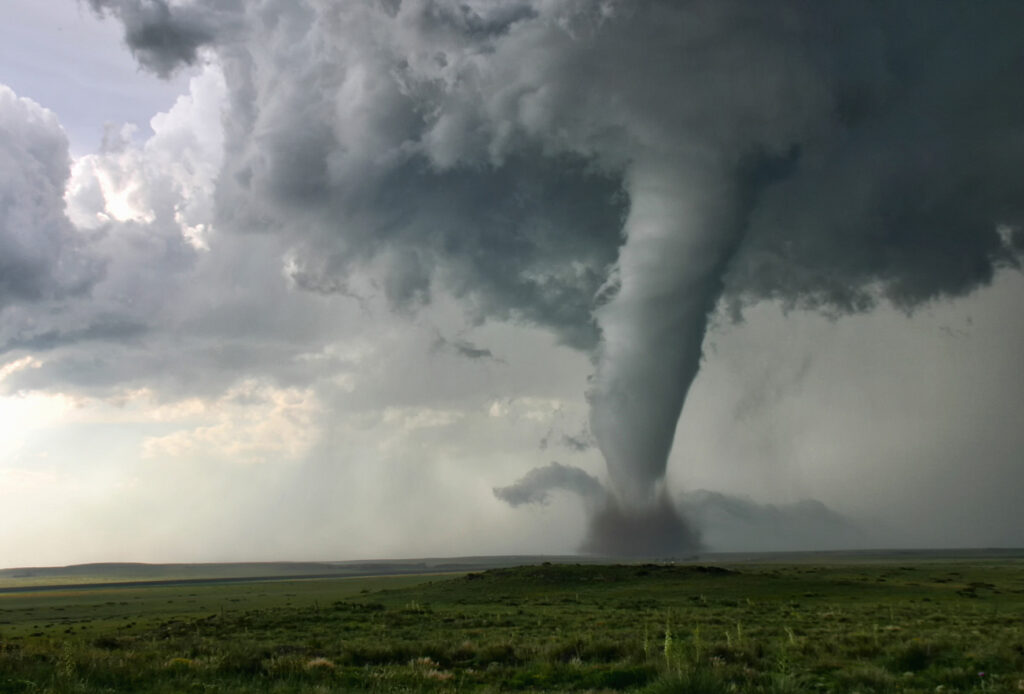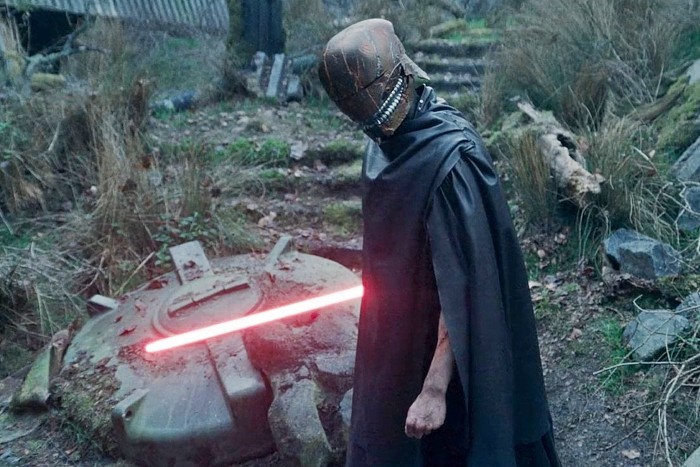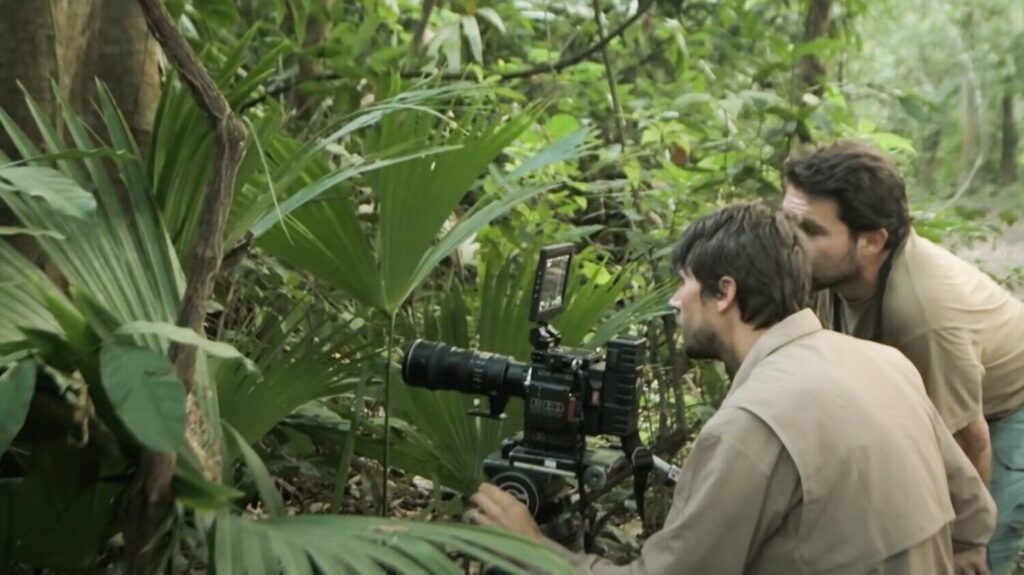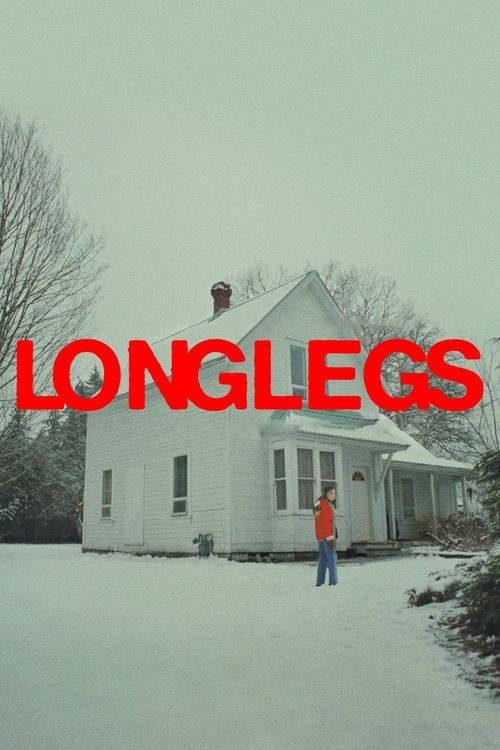
We’ll talk Twisters in a moment but first we have to remind everyone about the local tornado that’s hitting Scriptshadow this Friday: MEGA-SHOWDOWN. It’s a free online screenwriting contest. You send in your title, genre, logline, and first page and the ten best entries will go head-to-head this weekend. Your script needs to be finished because the winner will get a script review. Here’s how to enter…
What: Mega-Showdown (Online Feature Screenplay Contest)
What I need from you: Title, genre, logline, your first five pages
Optional: movie tagline, movie-crossover pitch
Contest Date: Friday, July 26th
Deadline: Thursday, July 25th, 10pm Pacific Time
Send to: entries should be sent to carsonreeves3@gmail.com
How: Include “MEGA” in the subject line
Price: Free
Onto the weekend!
As often happens on the weekend, Friday rolls around and I say, “I’ve got to go see this new movie!” And then ALL THE WORK I didn’t get done during the week rears its head, with script after script still to read, and I say, “Guess there will be no movie this weekend!”
MAYBE if Twisters had scored higher than 90% on Rotten Tomatoes, I would’ve found a way to get to The Grove. But one of my prerequisites for going to the theater is that the movie has to look like it’s offering SOMETHING new. And no matter how far you ducked your head in the cellar to avoid that whirling dervish of Glen Powell hype, this movie looked as formulaic as it gets.
Which is BAD when it comes to someone who’s spent thousands of hours of their life dissecting screenplays.
But it’s GOOD, as proven by the 80 million dollars Twisters took in this weekend, for the average moviegoer. I think a lot of us forget that the average person sees 1 or 2 movies a year at the theater. Those audiences don’t have any idea what formula is. Nor do they care.
So, if you know the 3-Act structure, you can write one of these big Hollywood films. And if you really want to separate yourselves from the pack, learn to execute the 3-Act structure INVISIBLY. What that means is, when the major story beats show up, they don’t announce themselves. “HERE’S THE INCITING INCIDENT!” “HERE’S THE FIRST ACT TURN!” “HERE’S THE CULMINATION OF MY HERO’S ARC!” Once you become an expert at delivering these big moments invisibly, you become a screenwriting gale-force (hey, I’m trying to stay on-theme here, work with me).
In fact, if there’s anything that the success of these reboots like Beverly Hills Cop, Top Gun, and Twisters has taught us, it’s that formula stands the test of time. I suspect that one of the reasons these gigantic ensemble franchises, like Marvel, like Fast and Furious, and like Star Wars, are starting to crumble is because they screw with a key ingredient in the screenplay formula, which is that they throw away the single protag in favor of 10 of them. So the audience doesn’t have that one person to relate to and connect with.
Let’s not forget that, as those franchises grew, like Marvel, they were utilizing the more traditional formula with small character counts. But they made a deal with the devil once they started including multiple superheroes in each movie. Cause you can’t go backwards after that. Not only does it mean that we don’t have that one character to connect with anymore. But the structure gets uncomfortably stretched out when you’re covering ten character storylines instead of one.
Ryan Coogler played the good soldier in Black Panther 2 but, every once in a while, he couldn’t contain how frustrated he was that Marvel was making him include characters like Iron Heart. The narrative had to go completely out of its way to get her into its story and that broke the formula. Once you break the formula, the formula stops working. You either have to commit to it or don’t use it at all. You can’t straddle the fence.
Another screenwriting win this week comes in the form of the 5 year old Bryan Cranston Showtime show, “Your Honor.” The show did middling numbers on the old-timey cable network. But now that it’s on Netflix, it’s doing INSANE numbers. How insane? On Nielson’s OVERALL ratings, it’s beating out The Boys and House of the Dragon.
If you remember, Cranston’s breakout show, Breaking Bad, didn’t initially have huge numbers on AMC. It was only once the show got to Netflix that it became this huge bonanza. So they’re obviously using the same strategy here. And it goes to show that how well a show is received has a lot to do with what network it’s on.
So, why is it a win for screenwriting? Because it’s a show with one of the better concepts of the last five years. A judge’s son hits and kills someone with his car. The judge then uses his power to protect him and cover it up. But problems arise when the victim turns out to be the son of a mob boss. That’s a really good premise for a show!
If only the execution was as good as that concept! I watched three episodes and the writing wasn’t as crisp as Breaking Bad. But, again, this is why concept is king. It can absolutely override average execution. Cause everybody is watching this show now even though the execution isn’t superb.
Speaking of Nielson ratings, there was another surprising placement on the list. Or, in this case, you could say non-placement. Not only did The Acolyte not make the Overall Top 10 in ratings. It didn’t even make the Originals Top 10! That’s straight-up embarrassing. Some of you might contest that. But if you’re honest with yourselves, there’s no way around it. This is a 180 million dollar show. That’s on par with Game of Thrones. To fall below Sweetooth, Mayor of Kingstown, and even America’s Sweethearts: Dallas Cowboys Cheerleaders, is a catastrophic failure.
 Is that the hatch?? Wait a minute, does Qimir live on the Lost Island???
Is that the hatch?? Wait a minute, does Qimir live on the Lost Island???
Look. We can talk all day about the failure of Star Wars shows. And I do. But between the ratings for this, Andor, Obi-Wan, Boba Fett, and Ahsoka, this is proof that Star Wars was not made for television. It doesn’t work without a) spectacle and b) giant stakes. People don’t care if two Star Wars characters who have minor conflict with each other are talking in a room. And that’s TV’s bread and butter – two people talking in a room. So, Acolyte may not only have doomed itself. It may have doomed Star Wars television for good.
As you all know, this week is not just Mega-Showdown mania but also the release of the biggest movie of the year: Deadpool vs. Wolverine. I just realized now I’m not going to be able to review this film because it debuts on the same day as Mega-Showdown. And Mega-Showdown is like Love Island. It lasts ten days. Actually, you know what? I can just review it in my newsletter. Yeah, I’ll do that!
I feel bad for the Deadpool team. They’re doing EVERYTHING they can to generate publicity, something Ryan Reynolds is a master of. But they’re doing it during the two wildest weeks in American political history. It’s hard to gain any media attention with the craziness that’s going on right now. So a lot of these Ryan and Hugh posts that would normally go viral are disappearing faster than a High School freshman after a Thanos snap.
It’ll be interesting to see how they adapt to this because, so far, in all the trailers, they’ve only been giving us the first act of the movie. There are said to be a lot of big cameos in the film. I wouldn’t be surprised if they started announcing some of those cameos this week in order to get SOME media traction.
As for my excitement level for the film, I’m at a 7 out of 10. There has been nothing in any of the trailers that’s gotten me dancing the Macarena on top of my bed. And the movie definitely has a weak link, which is the director, Shawn Levy. Shawn’s only directed one R-rated movie in his life (This is Where I Leave You). He cut his teeth on inoffensive material, like Night at the Museum and Cheaper by the Dozen. And he directed one of the worst movies I’ve seen in a while, in The Adam Project.
To expand on that, when you look at this trailer, you do not see “vision.” Sabertooth was one of my favorite comic book characters growing up and he just looked so vanilla here. I felt nothing when he was revealed.
So I’m not going to lie. I’m worried. But it’s still going to be better than 95% of the big studio movies this year. Without question that will be the case. The franchise has too many weapons at its disposal to fail. I just want it to live up to the hype. This is the kind of movie that could galvanize the moviegoing public. We need it to kick butt.
Anybody else worried?
Mega-Showdown.
Get those scripts in!
You have until Thursday, July 25th, to send your entry in!

We are nearly at the finish line!
The Mega-Showdown Screenplay Contest activates in 7 days. Next Friday, 12:01 AM, the top ten entries go up on the site.
But you can only be one of those entries if you enter. So get that script finished and send it over to me!
Now, since we’re just a week away, you’ve only got 4 [suggested] days left to clean up any of the dialogue throughout your script. You should not be making any major scene changes this late. You don’t have the time to see how a major scene change will affect the script. So don’t do it.
Once you get down to 3 days, you’re ONLY DOING spelling and grammar.
And guys, please – PLEASE – do not keep rewriting your first page. Everybody rewrites the heck out of that first page and, as a result, there’s a lot of new text on there, which means there are almost always errors. And even if there aren’t, parts of it will read sloppy since it’s so new.
Remember, I’m posting the first page of each entry that makes the showdown. Therefore, if I read your first page and there’s an error, you’re out. You won’t make the showdown. So only fix grammar and spelling! Stop rewriting everything.
One of the harder things to do in screenwriting is to trust your former self – the you who wrote those earlier pages. That person had a reason for doing that. You are at the point in the process where you have to trust that they did their job.
I’m very hopeful we’re going to find a great script.
ONE MORE WEEK TIL THE CONTEST!
Here’s how to enter…
What: Mega-Showdown (Online Feature Screenplay Contest)
What I need from you: Title, genre, logline, your first five pages
Optional: movie tagline, movie-crossover pitch
Contest Date: Friday, July 26th
Deadline: Thursday, July 25th, 10pm Pacific Time
Send to: entries should be sent to carsonreeves3@gmail.com
How: Include “MEGA” in the subject line
Price: Free
Script sale! Just sold!
Genre: Thriller/Horror
Premise: A young Asian woman becomes concerned when her Asian roommate begins dating a white man and she slowly starts becoming white herself.
About: This script has gotten a lot of heat in the last 24 hours because the trades announced it had been sold. It’s not clear if the actual sale just happened or it happened a while ago and they’re just now reporting on it. I know that happens sometimes. The script has been floating around for a year now which is good news for writers who feel like their script’s been passed up by Hollywood. You’re never passed up! You just have to find that one producer who loves it. So keep hitting people up. Keep pushing them to read your script. It’s like dating. You can have nine bad dates and on the tenth date, you find the love of your life. But does the love of your life have an artificial face?
Writer: Ran Ran Wang
Details: 96 pages
 Sonoya Mizuno for Jo?
Sonoya Mizuno for Jo?
At the end of the day, screenplays are subjective.
You like some. You dislike others. It’s all part of the game.
But that doesn’t mean you throw up your hands and give up. You can still weight things in your favor so that you’re more likely to end up in the “YES” pile than the “NO” pile. One of the first things you can do is give us a new twist on an old formula. If you do that, you’re ahead of the majority of screenwriters.
And today’s writer does that. This is a serial killer movie. But it’s a serial killer movie with a twist we’ve never seen before. The killer is dating Asian women, slowly turning them into white women, and then murdering them.
Haven’t seen it! And I’m guessing you haven’t either.
The question is, is that a *good* different idea? Or just a different idea? Cause if it’s only different, it’s not going to get you into the YES pile.
20-something Rina, a Korean American lawyer, is out on a date with 20-something Preston, a very white man, who’s also a lawyer (at a different firm). Usually, Rina hates dating app dates. But there’s something intriguing about Preston. She likes this guy.
Not long after the date, we meet Rina’s roommate, Jo, a lesbian who’s secretly in love with Rina. She’s not happy at all to hear that Rina’s date with Preston went well but because she’s such a good friend, she encourages Rina to pursue him.
But then Jo actually meets Preston and he freaks her the hell out. He’s super pale. He’s socially unaware. And he looks psychotic. Sometimes you’ll be talking to him and he just stares at you. Creeeeeeep-y. Jo notices that Preston keeps giving her sexy eyes when Rina isn’t looking.
As the weeks go by, Jo sees less and less of Rina and whenever she does see her, Rina seems paler. As Rina’s relationship progresses, we keep hearing about these blond girls getting murdered by a serial killer. One night Rina starts looking into these dead girls and realizes that one looks exactly like her Asian friend who went missing a year ago. But how can an Asian woman become white and blonde? It doesn’t make sense!
One day when Rina isn’t around, Preston shows up and corners Jo in the kitchen. He then kisses her, biting her lip. Jo gets away and, over the course of the next few days, she becomes super strong. At this point, she knows something crazy is up with Preston and desperately attempts to get Rina away from him. But Rina is now a blond blue-eyed white girl. Which means Jo needs to act fast.
This is a very ambitious screenplay and I’m not sure I was always able to follow along.
I liked a lot of the early stuff. In particular, I liked the subtext behind Jo being in love with Rina but Rina being obsessed with this new guy she met. In screenwriting, you’re constantly looking to build relationships that allow conversations to have subtext.
So when Jo is poo-pooing Rina’s new boyfriend, she’s not literally hating on the boyfriend. She’s got a dog in this fight. She wants Rina. So of course she’s going to hate on the new guy. But she can’t say she loves Rina out loud and therefore has to convey these things through subtext.
I also liked how casual the writing was. Sometimes we writers can obsess over every single word so much so that we end up with these technically correct paragraphs but those paragraphs read like jagged edges. The action description throughout this script read like butter.

My issues with the script had to do with the mythology.
I had a hard time following it. The antagonist, Preston, is fashioned after a vampire. For example, if he bites you, you gain superhuman strength. And there are many allusions to how pale he is and how pale he makes others. So we’re at least partly in vampire land.
But then I don’t know what that has to do with turning Asian women into white women. That whole aspect of the mythology seemed to have different rules. And once you create a mythology that contradicts itself, the reader gets confused and loses confidence in the story.
This is quite common, actually, especially in the early stages of a screenwriting career. We tend to see mythology as this giant candy store where we can pull out any piece of candy whenever we want. But good mythology is the customer who walks into the candy store and only buys the candy that he really needs.
Cause I had a tough time figuring out what the point was here. I know there’s this “toxic masculinity” theme running throughout the script. But there’s also this toxic friendship theme running throughout the script (Rina is terrible to Jo). I suppose, if you wanted to dig deeper, you could even say that this was a story about toxic heterosexuality since Jo is gay and the two people who screw her over are straight.
That’s not how you present your theme.
You don’t give the reader a bunch of choices and say, “Pick one.”
Yes, good movies explore multiple themes but the best movies have a dominant theme – one message they’re trying to get across.
And the problem with a script like this is that it’s clearly a THEME script. It’s created to be deconstructed for its message. So if that message isn’t clear, then you’re not executing the most important part of your presentation. Us moviegoers don’t need a theme when we watch The Fall Guy. But we do when we watch indie movies like this.
Even the title confuses me. “If I Had Your Face.” At first I think that’s coming from Rina’s perspective. She’s eager to have a white woman’s face. But then, later in the script, we get all these shots of mirrors and Jo’s face becomes Preston’s face sometimes and Rina’s face sometimes and the last dead girlfriend’s face sometimes. It just felt like we were throwing spooky stuff up on the screen even if we didn’t understand why.
By the way, this is something newbie writers do all the time in horror. They write trippy stuff and expect the reader to do the work for them. The writer doesn’t know exactly why they’re doing it but they’re HOPING the reader will come up with an explanation. You never want to write like that. You shouldn’t ever expect the reader to do your work. Even though it’s harder, you should always do the work yourself. You should always write things that make sense.
There’s a good lesson to be learned here, even if it’s a confusing one. I believe that Ran Ran is great with character stuff and dialogue. I think she’s weak in horror and mythology. However, this script doesn’t sell without the horror and mythology. That’s how powerful marketable genres are. Even if you’re not great with them, they give you a much better chance at selling your script, even if you didn’t perfectly execute the genre part. And that’s because producers read the script and see the poster and the trailer. Posters and trailers always look better when there’s a marketable genre popping off them.
[ ] What the hell did I just read?
[x] wasn’t for me
[ ] worth the read
[ ] impressive
[ ] genius
What I learned:“Running Commentary Description” – Running Commentary Description is when you occasionally use your action lines to commentate on what’s happening. It helps create a more casual read. So, for example, we get this line early on: “Finally, a waiter comes by with two glasses of red wine. A lifeline.” That last part – “A lifeline,” gives the reader a little more information on what that red wine means in the moment. Or later on, when Jo is speaking to a couple of Irene’s work friends and they’re going their separate ways, one of the friends says, “We should all catch up some time.” And the action line that follows is, “They never will.” I kinda like running commentary description but just like anything, if you do it too much, it can get annoying. So be careful out there.
Quite possibly the strangest reboot of a film ever!
Genre: Comedy/Adventure
Premise: I’m going to keep this a surprise reveal for the review itself since it’s such a strange concept.
About: That’s right. They’re doing an Anaconda remake! The current draft of the script is written by Tom Gormicon and Kevin Etten, who penned Beverly Hills Cop 4 and The Unbearable Weight of Massive Talent. For some reason, they are not listed as a team on this draft, but rather two individual writers, despite the fact that they always work on the same projects together.
Writers: Tom Gormicon and Kevin Etten
Details: 104 pages

You know, I went back and forth on whether I wanted to review this script.
An Anaconda reboot? Really?
Who was in the last one again? Ice Cube and J-Lo? That’s four names without a single name in them.
But the more I thought about it, the more I realized how valuable a concept like this is in Hollywood and that there’s a huge (big clue there) screenwriting lesson to be learned from it. Two, actually. I’m going to share those lessons with you in a second. But first, let’s see what the Anaconda reboot looks like…
Doug is a frustrated wedding videographer who yearns for the old days when he and his buddies used to make films together. The old crew was a gigantic fan of the original Anaconda, so much so that, when they were in high school, they filmed their own low-budget version of the movie.
Now, twenty years later, they’re all stuck in ruts in their lives, looking for meaning. Besides Doug, there’s Griff, who went on to become a real actor in Hollywood, albeit as 10th billing in shows like SWAT. Then there’s Griff’s old girlfriend, Claire, who just got divorced. During a little friend reunion, Griff reveals that he has the rights to the original book that inspired Anaconda. “What if we made the real movie we wanted to make in high school?” is his pitch.
Everybody invests a little money and they head off to the Amazon river in Brazil. They get a real anaconda from a snake wrangler, Santiago, and rent a boat to go down the river from mysterious boat guide, Ana. They then do a run-and-gun style production of Anaconda, a la “Monsters.”
But their plan goes awry when, during a scene with the snake, Griff freaks out, throws it off him, and the snake falls into the propellers of the boat and gets sliced up. With no snake anymore, they have to re-think the movie, bringing native Ana in as one of the cast for authenticity, and using real boat shots as they head up the river to the next city.
But when they learn that Ana is on the run from the cops and that there’s an actual giant snake trailing them, things get real quickly. Soon, Santiago is sucked up by the giant snake and they have to abandon their boat to escape the police. Stuck in the jungle… filmmaking becomes secondary to staying the f&*k alive.

What’s the lesson I want you to learn today?
There are two. The first is: Hollywood loves big things. They like big apes. They like big lizards. They like big dinosaurs. They like big robots. They like big sharks.
It’s one of the simplest yet most bankable concepts in Hollywood. Find a scary animal and make a big version of it! As silly as that sounds, doing that one thing could make you a million bucks.
But the more I thought about it, the more I realized that SIZE isn’t just about the antagonist in your script. Size is about the nature of the concept itself. In order to be worthy of a movie, your story needs to be LARGER THAN LIFE. I see a lot of writers making the mistake of writing scripts about average situations or “sorta big” situations. That’s not what movies are good at. Movies are for LARGER THAN LIFE SITUATIONS. The biggest of the big.
I was thinking about American Beauty the other day because of a screenwriting lesson I wanted to incorporate into yesterday’s post. On the surface, that movie is a downbeat meandering drama. But when you look deeper, the main character is dead at the opening of the story. That’s as big as it gets – life or death.
One explanation I’ve always liked was: Your movie should be about the biggest moment in your protagonist’s life. If it isn’t, you’re not telling a big enough story.
Always keep that in mind when you’re coming up with your movie ideas. Movies are larger than life. I’d take that a step further even. I’d say: Movies are LARGEST than life. Does it make grammatical sense? No. But I want to tattoo the importance of GOING BIG with your ideas into your brain. Cause if you go small… you’re fighting an almost impossible battle.
Okay, but what about Anaconda!? Is J-Lo and her trainwreck love life back?
I mean, I’ll give it to these writers. This is a unique take. And it’s way more interesting than giving us older flabbier versions of J-Lo and Ice Cube reciting lines from earpieces in front of blue screens that were positioned in their backyards so that they didn’t actually have to leave their homes to shoot the movie.
This is Sony and they’re clearly going for a Jumanji vibe. At one point, the script gets so silly that, as our crew is shooting on their boat in the river, they see another giant boat drifting towards them with huge movie lights and booms and cameras and we see that it’s the real Anaconda remake. Everybody turns to Griff and says, “I thought you had the rights.” And Griff says, “What are movie rights really?” That’s the kind of tone we’re dealing with here.
And they need that tone because the story is wacky. It’s even hard to buy into the initial premise – that all these guys would travel to the literal Amazon to shoot a movie on the fly. The time, planning, and money that would be required is way more than even a tenth of what they’re pretending it would cost here.
This goes back to yesterday’s post. The writers are lying. They’re lying a lot here. There are so many moments you can point out and say, “That’s not truthful.” “That’s not realistic.” Sure, you can hide some of that behind humor. But at least SOME of your movie has to make sense.
The second most clever thing they do is, when their real snake dies, they talk about making an adjustment in the story where they treat things like Spielberg’s Jaws. You never see the snake as much. They, instead, focus on the characters. It’s at that point you realize that they’ve barely showed the snake in our movie at all. So it’s art imitating life while also keeping the price of the real movie down, which is appealing to even the biggest of studios, like Sony.
The most clever thing they did was have the characters stumble upon the abandoned final set for the ACTUAL production of the Anaconda reboot and use that as their way to trap and kill the snake. That part I liked! But you have to get through so much silliness and so many paper-thin character moments to enjoy that climax.
I never bought into the setup. And when you don’t buy into the setup, it doesn’t matter what the writers do from then on. You’re already disengaged. But I find it cool that these writers tried something different. It just didn’t work in my opinion. Will it work with Jack Black and Seth Rogen or whoever they cast in this? Maybe. We’ll have to see.
[ ] What the hell did I just read?
[x] wasn’t for me
[ ] worth the read
[ ] impressive
[ ] genius
What I learned: I already told you what I learned. Go big physically or go big metaphorically. Casual life experiences have no place in the movies.
We’re just 11 days away from the Mega Showdown Screenplay Contest. Details on how to enter are here!

The only time when the box office is interesting is when something unexpected happens and we had one of those unexpected moments this weekend when Longlegs shocked Hollywood by pulling in 22 million bucks.
What’s interesting about this is that Longlegs is what I call a “tweener.” It is in between genres. It’s technically a serial killer movie but it’s shot and treated like a horror film. I mean, check out this trailer. Tweeners are where screenwriters go to gamble. Because when you get them right, the rewards are huge. Everybody tells you, “Oh my god, it was genius to mix those two genres!”
But when you fail, you fail spectacularly. We saw that with another tweener movie that came out this weekend, Fly Me to the Moon, a film that did about as good (9.5 mil) as I expected it to when I reviewed the script two weeks ago. It’s part biopic part rom-com??? I’ve seen some questionable tweener combos before but this one is up there.
Getting back to Longlegs, it’s a vindicating moment for me because I remember reviewing Osgood Perkins’ script, February, so many years ago and finding it to be excellent. It’s a strange thing, screenwriting, when you know someone is an excellent writer but the results don’t prove it.
You wonder why so many other less talented writers have these giant credits instead. Hacks like Mattson Tomlin or massively overrated teacher’s pet Michael Waldron. Perkins is a way better writer than either of these guys so why are the coloring book professionals making a million bucks a script?
I suppose when you look closer, it makes sense. Perkins lives inside the burn. He lives inside the subtext. Whereas these other writers live inside the party. They live inside the bells and whistles. And those things get more attention. Especially when it comes to the types of movies that make the most money in Hollywood.
But Perkins has finally made a, “Studios take note” movie that will most certainly elevate him to high profile status.
This past week, I’ve been talking with writer friends, I’ve been working with writers as a consultant, I’ve been reading scripts for the site, and I’m even reading a book. A major theme emerged from all this reading and it’s the topic of TRUTH in writing.
There are so many times when I read something where a character will say something or do something that’s not truthful. In other words, whatever they’re saying or doing is not reflective of what one would say or do in real life. And the second that happens in a script, a little switch gets flipped in the reader’s head where they think, “That’s not realistic.”
Every time that switch gets flipped, the reader gets closer and closer to disengaging his suspension of disbelief. It doesn’t take many flips for the reader to give up entirely. It only takes 2 or 3 times depending on the degree to which the moment affects the story. In other words, if a character says something untruthful when he’s joking around with a friend, it doesn’t bother the reader much. But when a character says something untruthful during an important high stakes moment in the story? That could be the end of your script right there.
To understand this, you have to see suspension of disbelief as a balloon. And every time you lie to the reader, it’s the equivalent of throwing a sharp rock at that balloon. Maybe the balloon survives a few throws. But eventually it’s going to pop.
So what does a lie look like in writing?
Let’s start with a simple example. You’re writing a horror script. You have a babysitter in a house. Your plan for the scene is to get the killer inside the house because you need him to kill her. So you have your killer dress like an electricity guy and ring the doorbell. The babysitter comes to the door, the fake electricity guy says there’s an electricity problem on the block and he needs to check the basement. What does the babysitter do?
Does she let him in?
I have news for you. If your answer is yes, you just lied to the reader. You’re lying because the babysitter isn’t going to let a strange man into this house at 9pm at night. At the very least she would tell him to hold on and call the owners of the house to inform them about the man and let them make the decision. But if she just lets him in because he wants to come in, you are lying to the reader. Which is inexcusable.
Okay, let’s look at another example.
Your female hero has been handcuffed and thrown in the back of a cop car, which is on the move. We establish that the cops are dirty and it looks like they’re taking her somewhere to kill her. For context, this is a family woman who’s never been in a situation like this before.
Our hero, when the cops aren’t looking, reaches up, grabs a bobby pin out of her hair, and discreetly goes to work, using the bobby pin to open her handcuffs, and jump out of the moving car.
Would you write that scene?
If so, you have just lied to the reader.
The lie is that this character would a) know how to do this and b) be able to pull it off. Have you ever opened handcuffs with a hairpin? Would you know how to do it? If you don’t know how to do it, why would this character know? You may say, “But that always happens in movies, Carson!” That’s literally the worst response you can use for justifying an action in your script.
“All those sh#tty movies did it Carson. Why can’t I?”
If you want to model your script off a terrible movie, go ahead. But I promise you that’s not going to help you when somebody reads it.
 “I wanna go home!”
“I wanna go home!”
One of the reasons that The Acolyte has completely fallen apart as a show is because it lies so much. Keep in mind, the audience isn’t aware that this is the reason they’ve lost faith in the show. All they know is they don’t like it. But the writer lying to them so much is the primary reason they don’t like it.
In this most recent episode, we go back in time when the twin girls, Maye and Osha, were still with the witch clan. The purpose of the episode is to show us why Master Sol came after and adopted Osha. It’s a big deal for a man to take a kid from her mothers so it has to be a major reason.
What ended up being the reason? He saw Maye and Osha playing in the forest and got a sixth sense that they were being taught an “incorrect” way of living. Not that they were in danger, mind you. Just that he didn’t like the way he assumed they were being raised.
That’s a lie.
That’s a bold-faced writer lie.
The writers needed to get Master Sol to the witch clan so they had Sol “get a sense,” by watching the two play, that further investigation was needed.
Character motivation is something writers lie about all the time because finding a valid motivation can be challenging. This is where most writing lies are born – in the face of having to do more work. Rather than do the work and find a valid motivation, they’ll lie and hope that the reader doesn’t pick up on it. But I’m telling you, that’s a dangerous game to play. Readers are always smarter than you think. And this Sol moment here became a viral discussion over social media, leading even hardcore fans to give up on the show.
In that same episode, one of the Jedis in Master Sol’s clan, Torbin, gets overwhelmed by the fallout that happens when they encounter the witches and promptly says, “I want to go home.” He keeps whining, telling everyone how uncomfortable he is. He wants to go back to Coruscant. I want to go home. I want to go home. I want to go home.
This is another lie.
For starters, the character is somewhere between 18-22 years old. “I want to go home” is something a 5-10 year old character says. Not an 18-22 year old character. So you’re lying about how a character of this age would react. Second problem, he’s a Jedi. Jedis are trained from a young age to be calm. This reaction goes 180 degrees in the opposite direction of that. So that’s another lie. Finally, they’re not 10 minutes from their home hut. They’re 7 billion miles from their home planet. “I want to go home,” doesn’t make sense within that context. It’s a complete and utter lie.
So when you watch that character freak out and get this overwhelming feeling that it’s inauthentic, this is the reason why. The writer lied three full times within one action.
This is why truth is so important in writing and it’s simpler to incorporate than you think. All you have to do is ask, “Is this how it would happen if we were in the real world?” Keep changing the action of the character until that answer is “yes.”
:)

